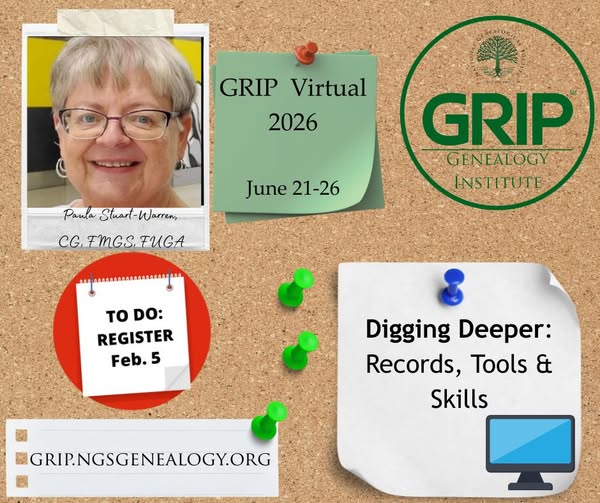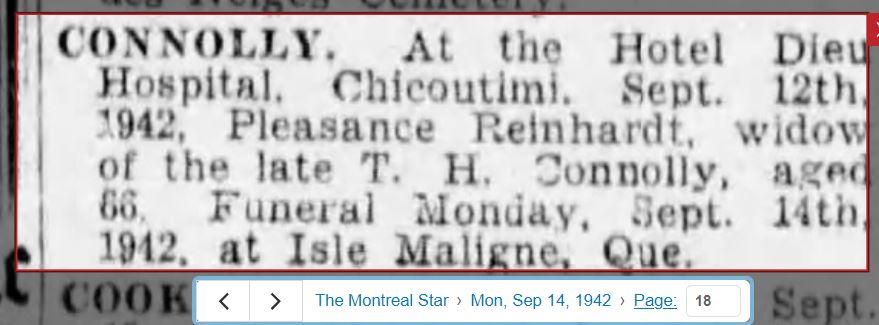It’s already the end of February and Black History Month. It’s been an extra busy month for me with some big decisions, working on genealogy presentations, family things, client consultations, and a whole lotta other stuff. One of the presentations I did this month was for the Western New York Genealogical Society on railroad records. Each time I do one of my railroad records talks, the handout and PowerPoint slides are updated and expanded to include some specifics for the area of the organization that has hired me to participate in a webinar or seminar.
After the presentation, I decided to do some other expanding of the handout and slides and focused on Black History Month, especially on Pullman Porters. If you have a Pullman Porter in your own ancestry or in a collateral family, I hope these websites and books will guide toward learning more about them, records that exist, and to honor their struggle to be recognized, treated well, and long-hours on the job. Just learning more about the history is beneficial to anyone. Many of the porters had been enslaved or were descendants of those enslaved.
Their story also includes the route to forming a union in 1925, most-often called a Brotherhood by railroad employees. One of the key men strongly involved in the unionization was Asa Philip Randolph. Several books and articles detail his life, strong beliefs, and the fight for the Brotherhood. Other Brotherhoods in the railroad industry from the late 19th century forward greatly ignored the black workers both men and women. The Brotherhood didn’t include Canada until the 1940s.
This is not a comprehensive list of resources and many of these should lead to other books and websites. Many journals of county, state, and regional levels carried articles about the porters. Other articles and books about the Pullman Palace Car Company included sections about the porters.
Articles and Books (JSTOR: https://www.jstor.org/ )
Chateauvert, Melinda. “Marching Together: Women of the Brotherhood of Sleeping Car Porters.” NWSA Journal 2, no. 4 (1990): 687–89. JSTOR.
Foster, Cecil. They Call Me George: The Untold Story of The Black Train Porters. Windsor, Ontario: Biblioasis, 2019.
Hansen, Peter A. “The Sons of Pullman Porters.” Railroad History, no. 201 (2009): 3–3. JSTOR.
Hughes, Lyn. An Anthology of Respect: The Pullman Porters National Historic Registry of African American Railroad Employees. Chicago, Illinois: Hughes Peterson Pub., 2007.
McKissack, Pat. And Fredrick McKissack. A Long Hard Journey: the Story of the Pullman Porter. New York, New York: Walker, 1989.
McWatt, Arthur C. “‘A Greater Victory’: The Brotherhood of Sleeping Car Porters in St. Paul.” Minnesota History 55, no. 5 (1997): 202–16. JSTOR and Minnesota Historical Society.
Santino, Jack. Miles of Smiles, Years of Struggle: Stories of Black Pullman Porters. Champaign, Illinois: University of Illinois Press, 1991. (also a documentary film)
Tye, Larry. Rising from the Rails: Pullman Porters and the Making of the Black Middle Class. United States: Henry Holt and Company, 2005.
Websites
ArchiveGrid. A search for Brotherhood of Sleeping Car Porters showed 325 results. The descriptions will lead you to archives, historical societies, libraries, and other repositories that hold collections related to this brotherhood. It may be a diary or personal papers of an individual, records of a local division, photos, oral histories, anniversary booklets, correspondence, membership applications, labor issues, and other types of records. https://researchworks.oclc.org/archivegrid/?q=Brotherhood+of+Sleeping+Car+Porters
Brotherhood of Sleeping Car Porters. https://en.wikipedia.org/wiki/Pullman_porter
Brotherhood of Railroad Trainmen Records, 1883-1973. Kheel Center for Labor-Management Documentation & Archives, Cornell University Library, https://rmc.library.cornell.edu/EAD/htmldocs/KCL05149.html
National A. Philip Randolph Pullman Porter Museum with an ever-expanding National Historic Registry of Pullman Porters. https://aprpullmanportermuseum.org/ Direct to the registry http://www.cfblr.com/national-registry/ (not always working)
Pullman Porter. https://en.wikipedia.org/wiki/Pullman_porter A good overview.
Pullman Porters. https://www.nps.gov/pull/learn/historyculture/pullman-porters.htm
Sleeping Car Porters in Canada. https://thecanadianencyclopedia.ca/en/article/sleeping-car-porters-in-canada
As I was posting this on the blog, I remembered that Janice Lovelace did a webinar for Legacy Family Tree Webinars on the Pullman Porters and Maids. I did not rewatch it tonight but it may be something else you need to do and to view her syllabus. It will require a subscription and I would be grateful if you would use my affiliate link https://legacyfamilytree.com/product/membership/?ref=566036




